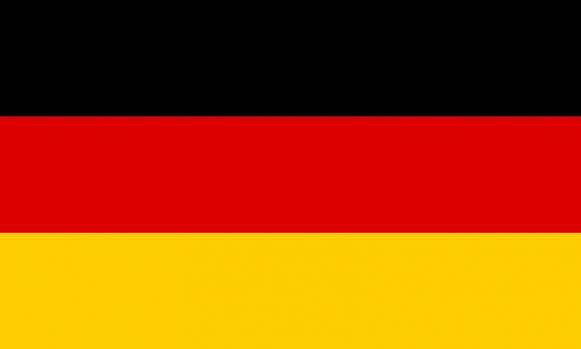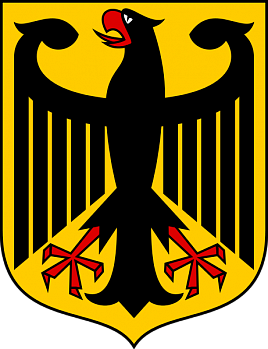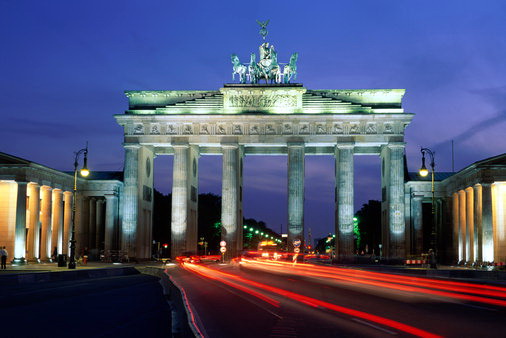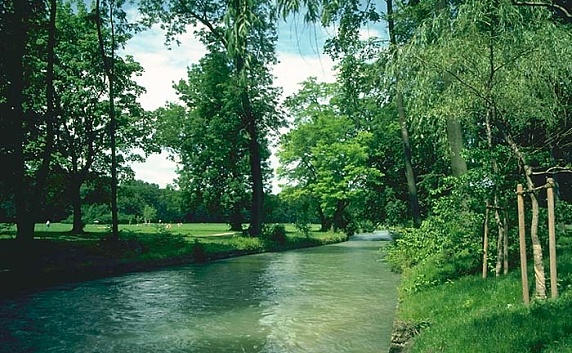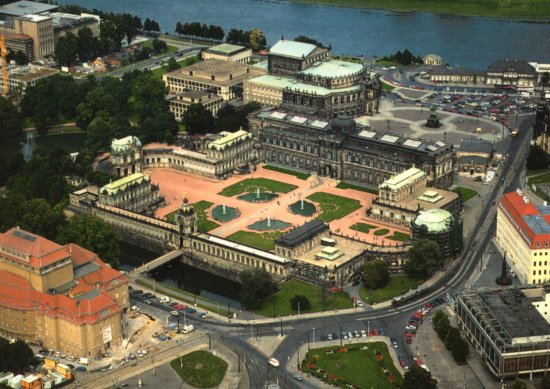 Федеративная Республика Германия
Федеративная Республика Германия
Speculations about “disparities” in Russia’s response measures on Deutsche Welle
Despite Russia’s numerous warnings that in the event of continued actions to restrict the broadcasting of the Russian TV channel RT DE in Germany a response would be imminent, Western officials and media keep pretending that Moscow’s retaliatory steps took them by surprise. Soon after the Russian Foreign Ministry announced the measures, the information sphere was awash with speculations about “disproportionate” actions of the Russian side and some kind of “disparity.” One instance of such publications was an article on the Deutsche Welle Russian language website (https://www.dw.com/ru/fakty-o-sankcijah-protiv-dw-v-rf-i-zaprete-rt-de-veshhat-v-frg/a-60660954). Let us analyse it item by item.
1. Russia has cancelled the Foreign Ministry’s accreditation of the entire staff of the DW bureau. They have no right to conduct journalistic activity in that country. RT DE staff continue their activities in the FRG, they are not denied accreditation and are not forbidden to work. RT DE Productions GmbH company continues working in Berlin as it produces content for RT DE channel.
The real situation:
One can only say formally that RT DE staff “can” or “were able” to work in Germany while completely disregarding the actual situation. RT DE was told in a straightforward manner that the TV channel has no right to obtain a broadcasting licence in the country (which DW had been granted for working in Russia). All RT Group companies registered in Germany continue to face enormous challenges. Thus, in May 2021, Commerzbank with the state as its biggest stakeholder, closed the bank accounts of the Group’s two companies, Ruptly and RT DE Productions, without giving any explanations. The main databases for journalists and media professionals, Myconvento and STAMM, refused to work with RT DE. The German Union of Journalists (DJV) continues to refuse to issue RT DE Productions staff press cards. Experts and guests of the channel are afraid to talk as once they have spoken on RT DE they are then condemned. Thus, de facto, Germany treats RT as a banned media outlet.
As to the status of DW German correspondents, under the first stage of response measures on German media outlets announced on February 3 as a reaction to unfriendly actions of the FRG for banning satellite and other line broadcasting of the RT DE German language TV channel, the Press Centre of the Russian Foreign Ministry cancelled the accreditation of all the staff of the German TV and radio company DW’s bureau in Moscow: a total of 19 journalists with three of them being foreign nationals (UK, USA, FRG) and 16 Russian nationals. The bureau is formally declared closed. It should be noted that the steps undertaken will not significantly affect the Russian nationals. They can collect and analyse open-source data, monitor the information space, prepare reports and materials for the DW central editorial office, speak as experts, etc. Regarding foreign nationals, they can still stay in Russia in accordance with the visas issued to them and conduct the above activities alongside their Russian colleagues.
Thus, even though the bureau’s staff does not enjoy all the rights afforded to journalists according to the Russian Federal Law on Media after their accreditation was cancelled, the steps taken by the Russia are not one-sided restrictions, which was reported at a meeting with the DW bureau representatives at the Russian Foreign Ministry on February 9. In addition, special emphasis was made on the fact that Moscow is ready to return to the status quo on the condition that Berlin ensures equal opportunities for the Russian RT DE channel.
2. Since 2005 DW had acting licences on broadcasting its two channels in English and German — DW English and DW Deutsch. In compliance with Russia’s demands, the DW German language channel broadcasted a Russian language programme schedule. RT DE was not granted the right to broadcast since it did not have a licence and did not apply for the right to broadcast in Germany, which is required by the State Treaty on the Modernisation of Media Legislation in Germany currently in effect. German law outright forbids broadcasting and operation by state-owned media.
The real situation:
Russia, guided by its adherence to the freedom of dissemination of information and expression of opinions, granted a broadcasting licence to DW in 2005. The Russian Federation presumed that the Federal Republic of Germany will be guided by the same understanding. Despite all the challenges RT encountered in Germany, DW had been operating legally in Russia all that time while its accreditation and licence remained valid.
RT DE did not apply to Germany’s national bodies for a licence for two reasons. The first reason is due to the categorically negative response RT DE received from the German regulator MABB after unveiling their plans to launch a new channel. The regulator cited that state funding for a TV channel indicates that it is connected with the state.
It is crucial to note here that state-funded media outlets from other countries are broadcasting unhindered on German soil, for example, Radio Free Europe / Radio Liberty funded by the US Congress, a body of state authority in the USA.
Meanwhile, RT was told that it could never get a licence anyway. Consequently, it made no sense at all to apply for one.
Secondly, ANO TV-Novosti, the company that owns the RT DE channel (broadcasting from Moscow), has never recognised Germany’s jurisdiction over the channel. RT DE broadcasts to the global German-speaking audience including in Europe and is aimed at German speakers, not only German citizens. After an unsuccessful attempt to get a licence from Luxembourg, which was pressured by German representatives, following which a licence was not granted, a licence was issued in Belgrade. It is important to explain why RT DE got a licence in Serbia. The initial signal is currently uploaded to the satellite from Serbia, and the jurisdiction of RT DE is determined by this so-called “technical” criterion.
Under the provisions of the European Convention on Transfrontier Television, a TV channel with a licence issued by one of the signatory countries can broadcast TV programmes in all countries – parties to the convention, i.e. 33 European states including most EU countries with Germany being among them. RT DE as a foreign TV channel received a licence from the signatory country, Serbia, and thus had the right and ability to broadcast to German territory. It was the German authorities who ignored their obligations and pressured Eutelsat, a French satellite operator, which was uitilised to allow the channel to be broadcasted across all of Europe.
3. Russian Foreign Ministry stated its intent to stop not only satellite but also DW’s other broadcasts and announced “additional stages of response measures.” The RT DE online website has not been blocked and is freely available in Germany, German authorities have not announced any plans to limit access to it.
The real situation:
As of yet, the RT online website in German remains accessible for users in Germany. However, even the decision by the Commission on Licencing and Supervision of February 2 of this year on banning satellite and other line broadcasting contains provisions that restrict broadcasting via the RT DE online portal, including live streaming. In addition, German authorities earlier used their administrative resource to prevent the channel’s operation at one of the most popular online platforms – YouTube video hosting, and German language YouTube channels were deleted from the portal. Meanwhile, DW Russian language YouTube account (DW на русском) is available and continues to be updated. Likewise, the DW internet site is operating and it remains accessible on mobile and fixed devices.
The crucial point is that further response measures will not be needed if the German side shows a constructive attitude and ensures equal rights for Russian journalists working in Germany.
4. According to a Russian Foreign Ministry statement, Russian authorities will consider designating DW media company as foreign agent. German law has no similar status or operation restrictions.
The real situation:
The challenges the RT channel faces in Germany were listed above (see Item 1). Even though German legislation does not contain the legal status of a foreign agent in theory or in practice, a whole range of steps taken by Berlin do not simply “mark” the RT channel but also stigmatise it by making the execution of information and communication operations much more complicated. It is also enhanced by numerous statements of German officials and the leaders of Germany’s key journalist trade union who, contrary to the principles of the freedom of speech, denigrate the work of the Russian channel’s correspondents in every possible way. It is safe to say that the RT DE situation in Germany is in practice much worse than that of media outlets that have foreign agent status in Russia.
Meanwhile, although German law does provide for the legal status of foreign agent, the Federal Office for the Protection of the Constitution (internal security and counterintelligence) officially claimed that it is “watching” (beobachten) the activities of the Russian TV channel, which also carries with it significant reputational and other damage.
5. Russian authorities have launched the process of compiling a “blacklist” of “state and public structures in the Federal Republic of Germany involved in restricting RT DE’s broadcasting and pressurising the Russian media operator”, in other ways as well so as to ban their entry to Russia. According to current information, German authorities are not currently taking such steps and do not plan to take them.
The real situation:
It is evident from the above that pressure on RT DE is of a targeted, political nature and that certain German government and public organisations are engaged in this. The entire situation was initially concocted as one more provocation against our country. Meanwhile, the EU regularly introduces stop lists against our country’s citizens at Germany’s initiatives. Therefore, Germany knows how to impose unilateral sanctions.
It was a matter of time before the anti-Russia policy in the media sphere being pursued by Germany would draw a reciprocal response from Russia, which it has used against DW.
6. After two YouTube channels were blocked, Russian authorities accused Google of censorship and the German government of being the instigator of the decision to block the channels. Berlin dismissed the allegation saying that German authorities have nothing to do with YouTube’s actions.
The real situation:
Germany as a signatory of the International Covenant on Civil and Political Rights must ensure that its audiences receive access to alternative sources of information, including the Russian RT DE TV channel. Just as the USA, which hosts YouTube’s headquarters on its territory, is part of this Covenant. However, the authorities of the two abovementioned countries did nothing to uncover the reasons for such digital censorship. Instead, Berlin just said that the situation does not concern them.
It should also be noted that prior to the deletion of RT’s channels by the video hosting company, German media launched a massive campaign with indignation over the journalistic success of RT DE and the channels’ popularity among the German-speaking audience.
7. DW is a legally public media outlet. DW is funded from by the state budget of FRG, however, the independence of the editorial policy is ensured by the law and the supervisory board. Unlike Germany, Russia has state-owned media outlets. Among them are MIA Rossiya Segodnya and ANO TV-Novosti which incorporates RT DE.
The real situation:
Formally (legally) the DW TV channel is independent from the state as there are no German government representatives among the DW owners and shareholders/stakeholders. But the fact of the matter is DW is financed by the state. DW goals and mission are stipulated in the law: “DW is a carrier of the foreign cultural policy of the Federal Republic of Germany.” In 2014, when DW’s Director General Peter Limbourg asked the government for more money for DW’s development, he outlined his objectives in the following way: “I hope Germany will support us in this. Spreading our values around the globe is our national mission.” DW has special rights in Germany, it is allowed to broadcast in German, including in the country, without a broadcasting licence.
It should be stressed that Russian authorities did not and do not exert any influence on the editorial policies of the media outlets inside the ANO TV-Novosti (RT).


